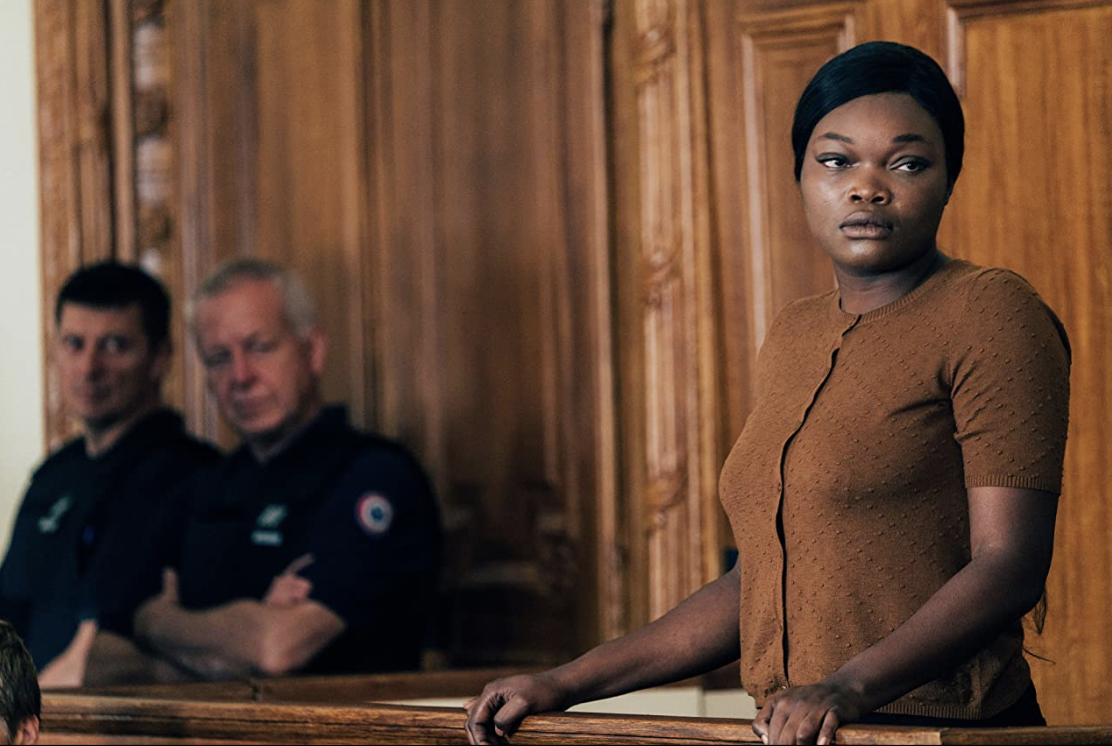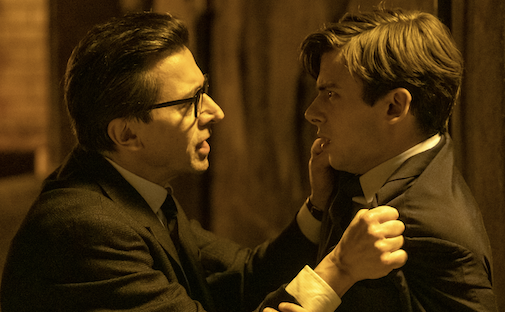by Elisa Giudici
 SAINT OMER could be a prize winner!
SAINT OMER could be a prize winner!
Have you missed courtroom dramas? Today Venice heard you, providing two strong movies about remarkable trials (one based on a true story, one fictional), plus an old school western. Also, have you heard? France now has a major contender for the Golden Lion (as usual)...
Lord of the Ants (Il signore delle mosche) by Gianni Amelio
Based on a true story set in 1960s Italy, Il signore delle mosche follows the trial against Aldo Braibanti (Luigi Lo Cascio) for "plagio". A journalist helpfully explains the situation within the movie: During Fascism, Mussolini refused to acknowledge gay men even existed in Italy, so the word "homosexual" was not included in Italian law. In the absence of explicit laws against gay people, they used a vague, genderless crime of "plagiarizing the minds and bodies of young people” instead to punish them.

The 77 year old director Amelio, who won the Golden Lion back in 1998 with The Way We Laughed, follows the trial of a myrmecologist (a branch of entomology focused on ants, hence the title) who is charged with "plagiarizing" one of his barely legal students. It's fascinating to see this queer story told in such an implicit way given the context; there is not even a single kiss between the professor and his pupil. Amelio shines light on both the infamous trial and the homophobic way it was framed by L’Unità, the communist party official newspaper at that time. Braibanti, a Marxist with a past as an anti-fascist fighter during World War II was abandoned by his comrades. The movie sets out to prove that homophobia was a non-partisan affliction shared by all politicians and cultural institutions in 1960s Italy.
Amelio's decision to have Cascio, Elio Germano, and other actors speak in an obsolete, artificial Italian, combined with a stiff, labored delivery style (similar to how old theater actors spoke during monologues) is a blessing to those who aren't quite fluent in Italian. This is just one the ways the trial revolving around a passionate, tender love turns into a cold, tedious report focused on technicalities. The movie calls to mind the shifting general discourse around power dynamics in relationships recently, too, though perhaps unintentionally. Amelio as a co-writer and director sees nothing but love and affection in this story, but I wonder how audiences, gay or not, will receive it.
(Strange aside: Remember my short introduction to Padre Pio, the sainted friar played by Shia LaBoeuf in Abel Ferrara’s movie? During this trial, a witness explains that one of the “victims” of Braibanti was saved from homosexuality by Padre Pio himself!)

DEAD FOR A DOLLAR by Walter Hill
Westerns are not my cup of tea, at least if no secretly homosexual cowboys are involved. It seems that I was not the only one who found the return of the master of the genre a missed opportunity at best. Dead for a Dollar has a very classic, retrò approach to the genre: like Amelio, Hill is disconnected from contemporary sensibilities. If Cronenberg can look back in a movie titled Crimes of the Future, Walter Hill can definitely make a nostalgic, old-school western.
The problem though is how poorly its shot, edited, and assembeld. Here, the color correction is insanely yellowy with no nuance. The problem is acerbated by modern high definition instead of film grain. There are also multiple exampes of violating the 180˚ rule for no apparent reason. Paired with low budget production design and a conventional plot “bounty hunter follows an outlaw", you'll wonder why Hill rushed a comeback with such a mediocre movie. The bright spot: Willem Dafoe appears to be having a blast playing his character, a horse thief just released from a five year jail sentence.
SAINT OMER by Alice Diop
French cinema continues to surprise with an impressive first feature at seemingly every festival. How do they do it? This is a film that you can easily imagining putting all of the members of the jury on the same page. Will France win another consecutive Golden Lion? (Happening triumphed last year) If Saint Omer brings the prize home, don't say I didn't warn you.

Alice Diop’s movie is yet another film about motherhood, one of the most prevalent themes at the festival this year. The story slowly reveals itself as a courtroom drama about a young Senegalese migrant who kills her baby. Guslagie Malanda delivers a subtle but potent performance as Laurence Coly, the ambitious, hungry and remorseless mother on trial at the Saint-Omer criminal court. Watching the trial is Rama (Kayije Kagame), the other leading character. She's another Senegalese writer and teacher. She is working on an adaptation of Medea among migrants and hopes to find inspiration by attending the deeply unsettling trial. A mother-to-be herself, Rama has to face her fears concerning motherhood, deeply rooted in her family history and cultural heritage, two traits that make her connect with Laurence's story.
Like previous films from Diop, Saint Omer shows how manipulative and coercive European society can be for young African migrants. Her direction is rigorous and minimalist, the camera fixed on Laurence's face as she reconstructs - not always coherently - what led her to kill her own child after being isolated by her much older lover and frightened by signs of witchcraft. Coly is an angry yet dignified character, who recognizes “the spiral of lies I lived in before it collapsed” . Still, she's convinced an evil spell made her kill her daughter. Something, she is sure, “I will be unable to explain to you Western people”.
While very impressive filmmaking, the balance between Rama's and Laurence's story is far from ideal and the solemn pace sometimes dilutes the tension. Still, it's an excellent movie. Bravo to Alice Diop, who managed to make a narrative debut with a strong personal touch, subtle deployment of her documentary skills, and two stellar performances all with very limited resources.
more tomorrow
Also...
#1 - Tár, White Noise...
#2 - Bardo False Chronicle of...
#3 - Bones and All, Monica, All the Beauty and the Bloodshed
#4 - The Whale, Argentina 1985, Master Gardener
#5 - L'Immensità, Other People's Children, Love Life...
#6 - Banshees of Inisherin, Don't Worry Darling, Eternal Daughter